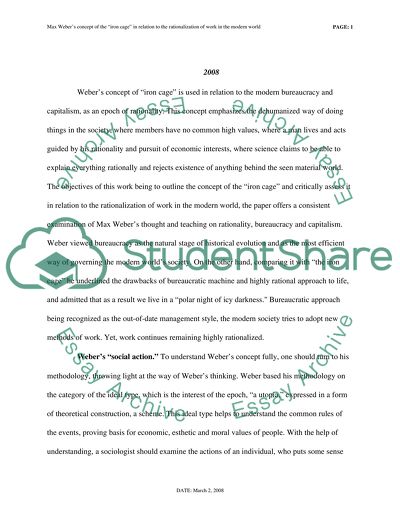Cite this document
(Max Webers Concept of the Iron Cage in Relation to the Rationalization Term Paper, n.d.)
Max Webers Concept of the Iron Cage in Relation to the Rationalization Term Paper. Retrieved from https://studentshare.org/politics/1544748-outline-and-critically-assess-max-webers-concept-of-the-iron-cage-in-relation-to-the-rationalisation-of-work-in-the-modern-world
Max Webers Concept of the Iron Cage in Relation to the Rationalization Term Paper. Retrieved from https://studentshare.org/politics/1544748-outline-and-critically-assess-max-webers-concept-of-the-iron-cage-in-relation-to-the-rationalisation-of-work-in-the-modern-world
(Max Webers Concept of the Iron Cage in Relation to the Rationalization Term Paper)
Max Webers Concept of the Iron Cage in Relation to the Rationalization Term Paper. https://studentshare.org/politics/1544748-outline-and-critically-assess-max-webers-concept-of-the-iron-cage-in-relation-to-the-rationalisation-of-work-in-the-modern-world.
Max Webers Concept of the Iron Cage in Relation to the Rationalization Term Paper. https://studentshare.org/politics/1544748-outline-and-critically-assess-max-webers-concept-of-the-iron-cage-in-relation-to-the-rationalisation-of-work-in-the-modern-world.
“Max Webers Concept of the Iron Cage in Relation to the Rationalization Term Paper”. https://studentshare.org/politics/1544748-outline-and-critically-assess-max-webers-concept-of-the-iron-cage-in-relation-to-the-rationalisation-of-work-in-the-modern-world.


